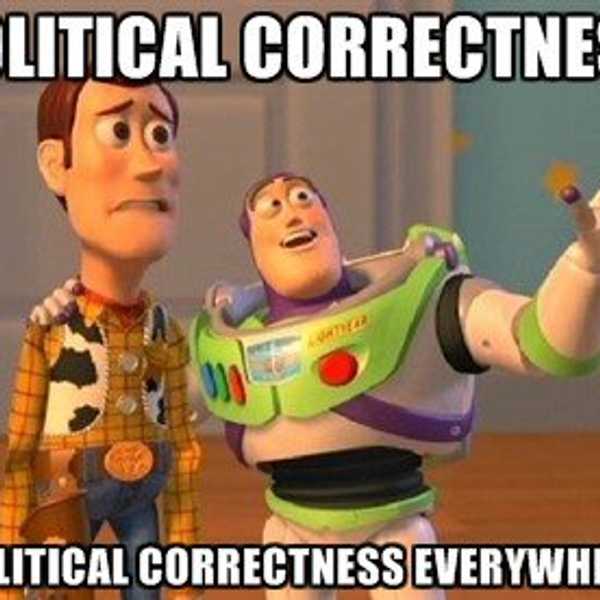“This isn’t politically correct, but…”
I’m starting to hear this phrase more and more often as I talk to people about politics. In a time in the United States where citizens are pushing for the acceptance and equal treatment of marginalized groups, criticism and oppression of these people is taking a different form, shrouded in the guise of a no-nonsense patriotic speaking of the mind. Recently, Presidential Candidates Ben Carson and Donald Trump took a strong stance against political correctness. Carson said during the last GOP debate that "PC culture is ruining this Nation." Trump said in his interview with Katy Tur, "Being politically correct takes a lot of time. It takes a lot of effort. We don't have time in this country. Our country is really in trouble.” This is the easy way out of talking about complex issues.
There seems to be a fundamental misunderstanding of the nature and purpose of political correctness in politics.
It’s not a matter of just saying the right thing because it’s a formality -- being politically correct stems from a basic respect for the people you are talking about. There should be a sort of reverence in addressing a social issue, a respect for the gravity of that issue, and a realistic and humble acknowledgment of the imperfections of the solution. Trump’s claim that he could be more politically correct than anyone but doesn’t “have the time to” shows his true colors. Being “PC” isn’t a luxury that comes with time – it’s a reflection of who you are as a person.
Ultimately, candidates who attack political correctness are simply saying that they don’t want to feel bad for saying bad things. They feel that backlash over a racist or demeaning comment is the result of a hypersensitive population, and that PC is a tool of the left to elect their candidates.
This is not to say, however, that political incorrectness doesn’t have a place in society.
When it comes to discussion, debate, and the exchange of ideas among citizens, it’s useful to be blunt and even say some things that are considered offensive and/or politically incorrect. No one should be silenced, no matter the opinion. Censoring comedians and speakers for being politically incorrect (especially on college campuses) is doing injustice to the first amendment and closing the door on useful discussions; being provoked is a good way to foster conversation and ultimately reach a conclusion.
As President Obama said when responding to recent college unrest, “Anybody who comes to speak to you and you disagree with, you should have an argument with them, but you shouldn’t silence them by saying you can’t come because I’m too sensitive to hear what you have to say.” In these situations, being politically incorrect can actually do justice to a conversation if the true intent conversation is to exchange ideas or debate.
The difference between these conversations and the conversations our presidential candidates are having is that there is no open-minded debate or exchange of ideas; the conversation isn’t just among themselves. And as representatives of the US, there is a responsibility to use language that emphasizes and promotes the acceptance of all US citizens. Proposing policy that marginalizes a whole race or religion (as done by Trump with his anti-Muslim policy) sends a clear message to the world about where the US stands.
Running for president demands a quality of nobility and compassion that Trump and other conservative candidates seem to lack. These candidates are on the world’s stage and representing all people. It’s not their role to throw respect out of the window for the sake of argument – that’s the role of citizens, comedians, speakers, political commentators, and writers. Since when did it become acceptable, even encouraged, for presidential candidates to arrogantly say the things they’re saying unapologetically and with a no-looking-back attitude? There’s a difference between being a strong leader and being a hardheaded fool.
Political correctness is a concept that will no doubt continue to be discussed. Should it be encouraged? Is it being exploited? Are citizens being oversensitive about uncomfortable issues? Who knows? For that reason, we should continue to discuss and debate politics whenever we can. If you see something that offends you, point it out. Argue. Do research. That’s the democratic process in action. However, this is just for the sake of debate. When it comes to policy, when it comes to giving speeches and acting as a representative of the nation, when it comes to making decisions that cost human lives, it’s morally reprehensible to say that there is no time to be politically correct. If these presidential candidates already have such a disregard for other people and treat PC as a formality, then that should serve as a red flag to all of us.
Be smart. Argue. That’s our role as citizens. Let’s make sure that we elect representatives who stay in their roles as well.





















